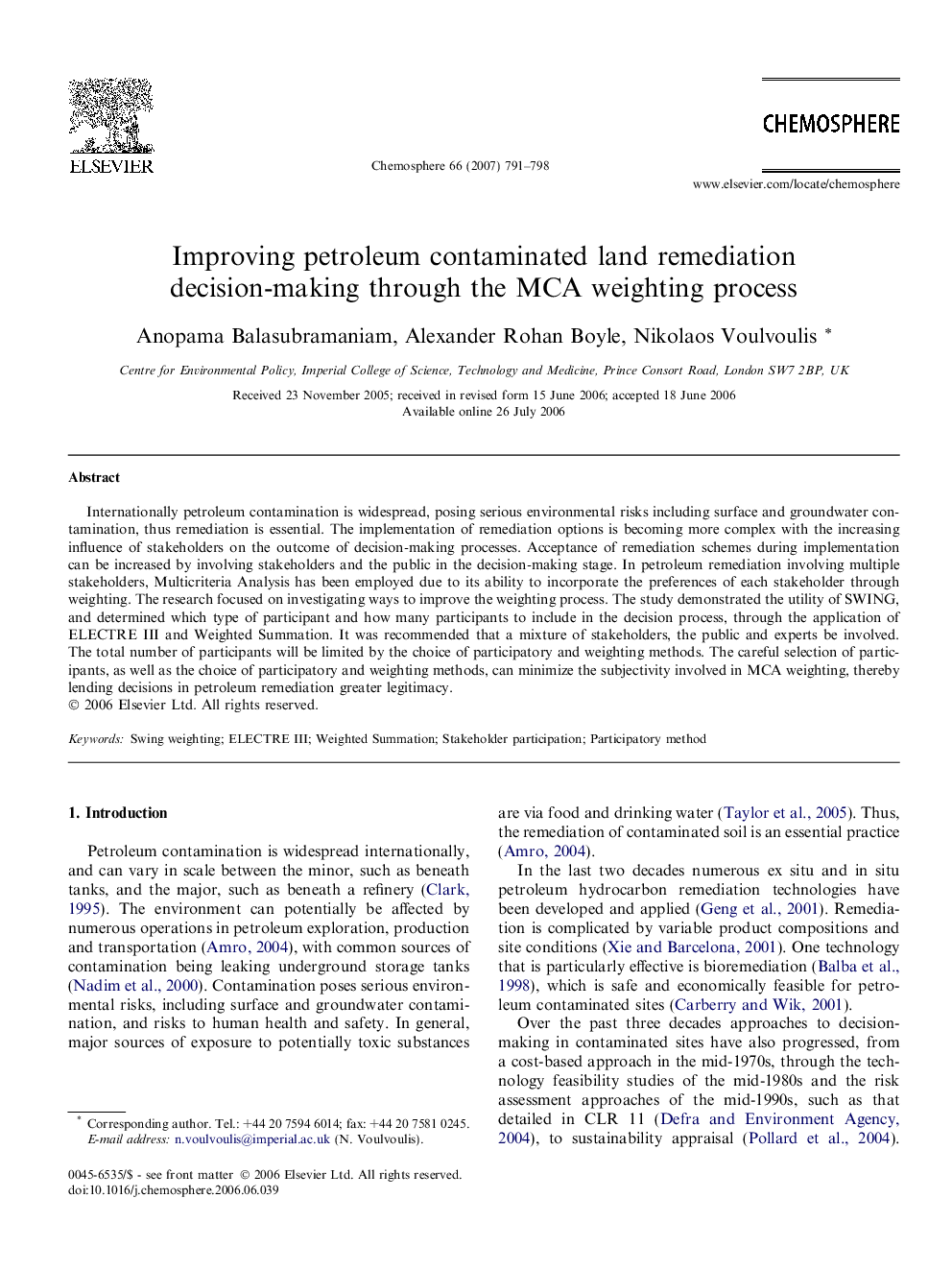| Article ID | Journal | Published Year | Pages | File Type |
|---|---|---|---|---|
| 4415894 | Chemosphere | 2007 | 8 Pages |
Internationally petroleum contamination is widespread, posing serious environmental risks including surface and groundwater contamination, thus remediation is essential. The implementation of remediation options is becoming more complex with the increasing influence of stakeholders on the outcome of decision-making processes. Acceptance of remediation schemes during implementation can be increased by involving stakeholders and the public in the decision-making stage. In petroleum remediation involving multiple stakeholders, Multicriteria Analysis has been employed due to its ability to incorporate the preferences of each stakeholder through weighting. The research focused on investigating ways to improve the weighting process. The study demonstrated the utility of SWING, and determined which type of participant and how many participants to include in the decision process, through the application of ELECTRE III and Weighted Summation. It was recommended that a mixture of stakeholders, the public and experts be involved. The total number of participants will be limited by the choice of participatory and weighting methods. The careful selection of participants, as well as the choice of participatory and weighting methods, can minimize the subjectivity involved in MCA weighting, thereby lending decisions in petroleum remediation greater legitimacy.
